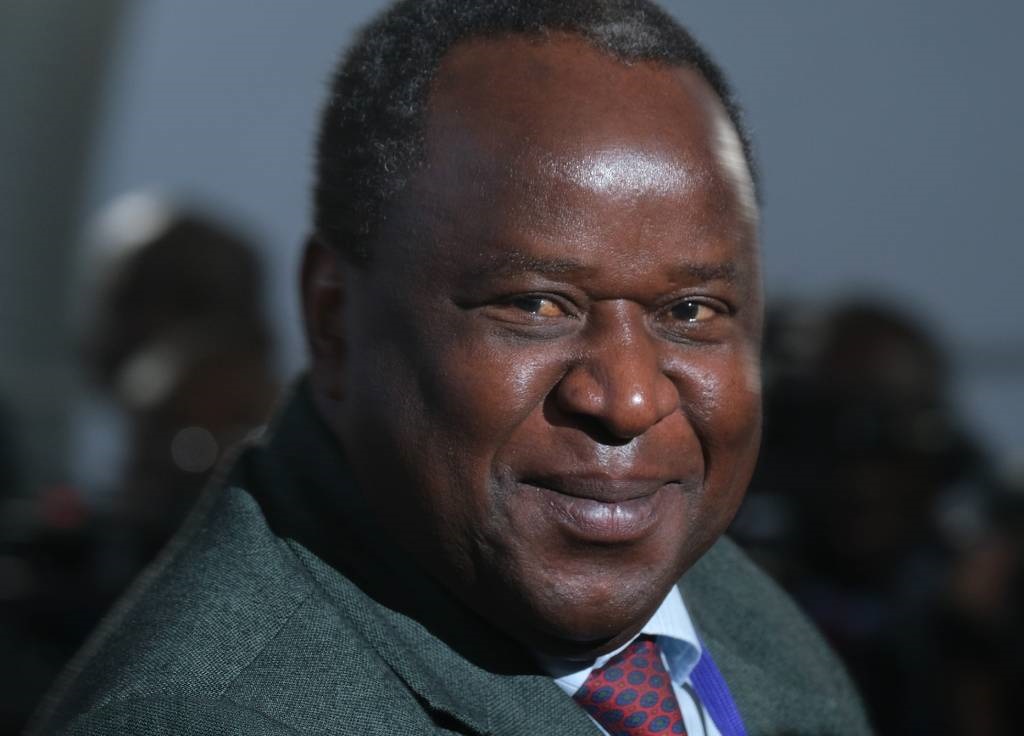


Finance Minister Tito Mboweni.
Sean Gallup, Gallo Images, Getty Images
- Beyond Covid-19, most economists agree that the best way to reduce South Africa’s debt burden is to grow the economy.
- The belief that we can spend our way out of low growth is misguided.
- Structural reforms are essential.
South Africa’s supplementary
budget puts forward a path to restore the sustainability of the fiscus, without
compromising on important social programmes. The belief that we can spend our
way out of low growth is misguided.
In considering our economic
future beyond Covid-19, most economists agree that the best way to reduce South
Africa’s debt burden is to grow the economy. Higher, more inclusive growth,
will be accompanied by higher investment and job growth that will place the
South African economy on a sustainable path. It allows us to reduce
debt-service costs as a proportion of our spending, direct resources towards
economic activities that can support long-run growth and empower the state to
take care of the most vulnerable in our society.
At this point, however, a
disagreement emerges. Some economists believe that the responsible way to
stabilise debt is to increase government spending to boost economic growth. A
few of them further believe that a focus on structural reforms is unproductive.
Others disagree, and point out that high levels of debt constrain the impact of
additional spending on growth. Proponents of the latter also believe that changing
the underlying structure of the economy is the best way to enable sustainable and
inclusive growth in the long run.
Let me take some time to
explain what informs this view.
Between 2009 and 2019, government
expenditure increased from 27.8% to 32.2% of GDP. At the same time, economic
growth was persistently lower than expected. Estimates of our long-term
potential growth have fallen from close to 4% in the late 2000s to around 1% in
2019.
There are two possible
explanations for this outcome. First, there are structural constraints, such as
the lack of affordable and reliable electricity, that depresses economic growth.
Second, unsustainable government
spending, funded by tax increases and greater debt issuance, has led to higher
debt, which has constrained public and private investment and thus growth. The
recent supplementary budget allows for a substantial short-term increase in
debt and spending, which we believe is a prudent way of balancing the needs of
the present crisis with inescapable long-run fiscal sustainability concerns.
Structural reforms
South Africa faces a number
of structural constraints to growth that were identified in the National
Development Plan. In response, detailed structural reforms were articulated in
government’s document entitled Economic Transformation, Inclusive Growth,
and Competitiveness: Towards an Economic Strategy for South Africa. These reforms
are structural in the sense that they do not respond to cyclical changes in
economic activity (like a downturn in global demand) or sudden demand or supply
shocks (such as the Covid-19 pandemic).
Instead these structural
reforms are meant to strengthen a country’s resilience to cyclical changes by
addressing the underlying structural elements that contribute to low growth. The
release of telecommunications spectrum is an example of a structural reform
that can enhance the ability of businesses to deploy new technologies, lower
the cost of data for households and act as a mechanism to allow new
participants to enter the industry.
Since 2017, despite strong
spending growth, investment has collapsed, dragging down economic growth.
Investment growth has been negative in 12 of the last 17 quarters. There was a
20.5% decline in investment in the first quarter of 2020, before the onset of Covid-19.
One explanation for the
recession and low levels of investment that preceded Covid-19, which is
consistent with a careful review of the economics literature, is that South
Africa’s fiscal multipliers are in fact quite small.
A fiscal multiplier measures the impact of
fiscal policy decisions, that is government’s spending and tax decisions, on
output (or private spending and investment). This empirical finding is unsurprising
because the international literature shows that multipliers in emerging markets
are smaller than in advanced economies and can be negative, particularly in the
longer term and when public debt is high.
High-debt countries have lower multipliers, because
fiscal consolidation is likely to have positive credibility and confidence impacts
on private demand and the interest rate risk premium. Studies that find higher
fiscal multipliers do so because they tend to ignore debt dynamics. As we demonstrate
in a paper on fiscal multipliers published through our research partnership, Southern
Africa – Towards Inclusive Economic Development (SA-TIED), in countries
with high debt such as ours, unsustainable spending increases can actually have
a contractionary impact on growth because higher debt service costs crowd out
important economic and social expenditure.
In other words, recent
spending growth has raised aggregate economic risks, and, with it, the costs of
borrowing in the economy as a whole. South Africa’s risk premium – the
additional return that investors demand to compensate for higher risk –
increased from 3.2% at the end of 2019 to 5.3% by 30 June 2020.
A higher risk premium means
that South Africa has to pay more to borrow money because our lenders are
concerned that we cannot repay our debt. This is dangerous for us because we rely
on others to fund the structural gap between our revenue and expenditure that
has persisted since 2009.
Higher borrowing costs lower
investment as businesses expect tax increases in the future and constrains the
ability of state-owned companies and the government to invest in public
infrastructure. This results in slower economic growth and less employment.
The belief that we can spend
our way out of low growth is inconsistent with the best available empirical
evidence and ignores South Africa’s recent poor performance in using government
spending as a tool to unlock much-needed economic growth. Gambling with our
future on risky economic strategies that have failed elsewhere is something we are
not prepared to do.
Tito Mboweni is South
Africa’s Minister of Finance.

